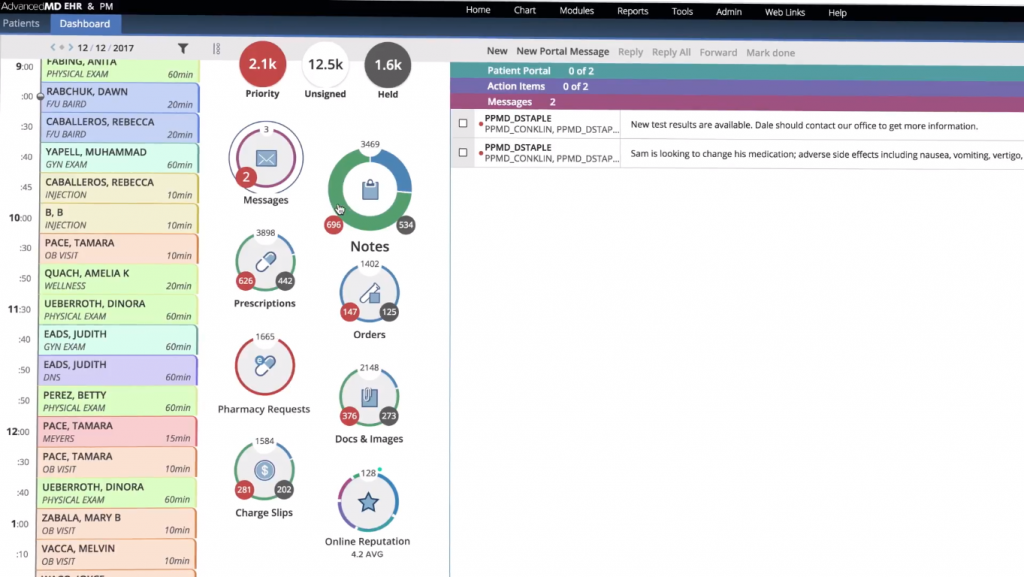Amidst the modern dynamic health sector, operating a healthcare practice efficiently is vital. Due to rising operational expenses and heightened patient demands, healthcare providers are in a continuing search for answers that not just boost care services but also manage expenses. One of the most transformative tools available is healthcare management software, which promises to streamline operations and improve patient experiences.
This advanced technology allows healthcare professionals by facilitating routine tasks, boosting communication, and reducing administrative burdens. From booking appointments to coding and billing, practice management software delivers a holistic approach to running a practice, allowing providers to focus more on patient care rather than getting lost in paperwork. As the healthcare landscape adapts, comprehending how this software can reduce overheads and streamline overall workflow is essential for practices aiming to thrive in an ever more competitive market.
Streamlining Processes
Practice management software is a foundation for enhancing the effectiveness of healthcare services. By simplifying routine tasks such as appointment scheduling, financial transactions, and notifications for patients, this software minimizes the time spent by staff on administrative tasks. This allows doctors to spend more time on treating patients rather than being bogged down by paperwork and manual work. The unification of different departments into a single platform leads to smoother operations and reduced chances of errors.
Additionally, practice management software improves communication among employees and service users. Features such as protected communication, EHR access, and online patient portals facilitate instant information sharing. This better communication streamlines patient interactions and empowers clinicians to make decisions based on better information . The ability to obtain patient information instantly also accelerates turnaround times, ultimately leading to improved healthcare outcomes.
The software's data analysis functions play a crucial role in enhancing performance as well. By collecting and evaluating data on performance metrics, patient demographics, and billing cycles, clinicians can identify trends and areas for improvement. This intelligence allows practices to implement decisions based on data, allocate resources effectively, and adopt approaches to improve service delivery while controlling costs. By utilizing data derived from practice management tools, medical facilities can constantly refine their operations for higher efficiency.
Improving Healthcare Engagement
Clinic administration software offers a range of capabilities that help medical providers connect with their customers in more meaningful ways. One of its notable aspects is the ability to deliver scheduled notifications for meetings and check-ins through multiple channels such as SMS, email notifications, or app messages. This not only lessens the rate of no-shows but also keeps patients informed about their medical appointments, fostering a sense of accountability and involvement in their own wellness care process.

Moreover, practice operational solutions can enable access to patient information and learning resources through patient portals. These interfaces empower patients to view diagnostic information, update personal details, and connect directly with medical professionals. By having more influence over their medical data, clients are likely to play a more proactive role in controlling their health status, resulting to enhanced well-being and compliance to care protocols.
Furthermore, many practice administration systems include features for feedback and questionnaires that allow medical providers to assess patient contentment effectively. By obtaining and analyzing client input, clinics can identify areas for improvement and adapt offerings to meet patient requirements more closely. This responsiveness not only improves the general client satisfaction but also fosters commitment and trust between patients and professionals, evolving the healthcare relationship into a cooperative partnership.
Economic Advantages
Implementing practice management software significantly reduces overhead costs for healthcare providers. By optimizing administrative tasks, such as appointment scheduling, charging, and patient records management, practices can decrease the time of time staff spend on these tasks. medicloudmed leads to reductions in labor costs and enables staff to focus on patient care, ultimately boosting service delivery and patient satisfaction.
Additionally, practice management software enhances revenue cycle management by minimizing billing errors and boosting collections. Precise coding and streamlined billing processes secure that claims are submitted swiftly and accurately, minimizing the risk of denials and delays. As a outcome, practices can test an increase in revenue flow, permitting them to spend more in resources that directly impact patient care.
Furthermore, by offering tools for performance tracking and financial reporting, practice management software assists healthcare providers take informed business decisions. With access to up-to-date data on the volume of patients, service utilization, and financial performance, practices can recognize areas for cost reduction and change operational strategies accordingly. This forward-thinking approach to managing funds not only ensures profitability but also boosts the overall quality of care provided to patients.
